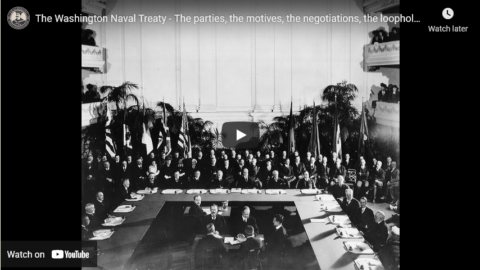 One of the reasons the “Hundred Years’ War” lasted so long, they’ll tell you first off, was that it was punctuated by long periods of (relative) peace. Another was the inability of medieval militaries to conquer and hold territory — the feudal system really doesn’t work for garrisons. Most important, though, was the fact that the “countries” fighting were no such thing. In medieval parlance, “France” and “England” meant “the person of the monarch, plus his immediate feudal retinue.” Your average peasant might’ve been aware, in some vague theoretical way, that his lord’s lord’s lord owed homage to some guy called “Edward III” or “Jean II,” but unless ol’ Whatzisface was actually marching through with an army, it didn’t matter in the slightest. “France” was as abstract a notion as “Christendom” …
One of the reasons the “Hundred Years’ War” lasted so long, they’ll tell you first off, was that it was punctuated by long periods of (relative) peace. Another was the inability of medieval militaries to conquer and hold territory — the feudal system really doesn’t work for garrisons. Most important, though, was the fact that the “countries” fighting were no such thing. In medieval parlance, “France” and “England” meant “the person of the monarch, plus his immediate feudal retinue.” Your average peasant might’ve been aware, in some vague theoretical way, that his lord’s lord’s lord owed homage to some guy called “Edward III” or “Jean II,” but unless ol’ Whatzisface was actually marching through with an army, it didn’t matter in the slightest. “France” was as abstract a notion as “Christendom” …
… at least in the early phases of the war. Low information velocity meant that even big changes at the top — the capture of the King at Poitiers, say — didn’t have much impact out in the sticks. By the time you found out about it, you’d been “subjects” of “England” for months, years, decades. Whatever, it didn’t matter, since the whole thing worked like loan sharking in Mob movies. Does it matter if it’s Rocco or Vito who’s collecting the vig this week? Maybe the Godfather got rubbed out, and now all the under-bosses from the Solozzo family report to the new capos of the Corleone family. None of that matters to you. All you know is, the new guy is going to break your legs if you don’t pay, same as the old guy would’ve done.
By the war’s later phases, though, the velocity of information had dramatically increased. Necessity is the mother of invention, and the French have always had a knack for cultural propaganda. Joan of Arc wasn’t worth much, militarily, but it’s one hell of a story, the kind that rallies troops. Nobody cares who the legal King of France is — that is, the guy whose name the lawyers finally hack out of the undergrowth of however-many family trees. The guy who is divinely anointed, though, by a prophet, in person? That’s a big deal. That’s the kind of story that spreads like lightning; the kind of story that makes “France” far more than just the name at the top of the org chart.
Moreover, the new guy — the divinely ordained guy — is competent. You can tell, because he’s winning. Your average feminist scholar knows as much about strategy as she does about heterosexuality, so we can ignore all their claims about Joan’s military genius. There are times when total incompetence is, in fact, a virtue, and this was one of them. Joan’s military strategy didn’t make any sense, because she wasn’t thinking in military terms — which is why it worked. Victory followed victory, until the English got wise … by which point it didn’t matter, because the Dauphin had been crowned as Charles VII and had solidified power behind him. In fact, you don’t have to be Machiavelli to see that Joan’s capture and execution by the English were all to Charles’s benefit — Charles gained a martyr to his cause, but only after Henry VI finally managed to beat a little girl. Information velocity guaranteed that both stories were all over France almost from the minute they happened.
Over in England, meanwhile, it was their turn to have an insane, incompetent king, and we know how that turned out. The point is, you can have a bad king. You can have a mad king. You can even have a bad, mad king and things can still work out ok — see Charles VI, who remained King of France for 42 years of the Hundred Years’ War despite believing he was made of glass — provided your mad, bad king reigns in a period of low information velocity. Not that things were hunky-dory in France from 1380-1422 — you know, Agincourt and all that — but the Charles VII who was anointed by God via Joan of Arc was the mad, bad guy’s direct lineal descendant. Charles VII’s main antagonist, Henry VI, was also a mad, bad king, and his successor, Henry Tudor … well, you know. I don’t think it’s an accident that the printing press was invented in the 1440s and made its first appearance in England in 1476, in the nastiest part of the Wars of the Roses.
Severian, “Crises”, Rotten Chestnuts, 2020-12-25.






